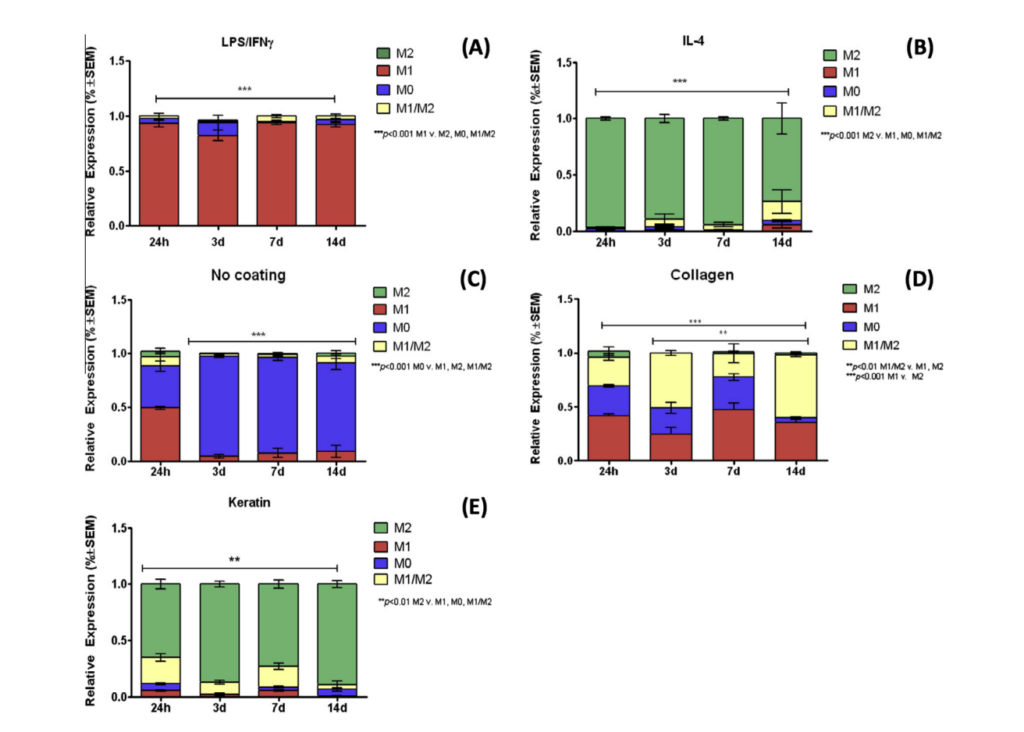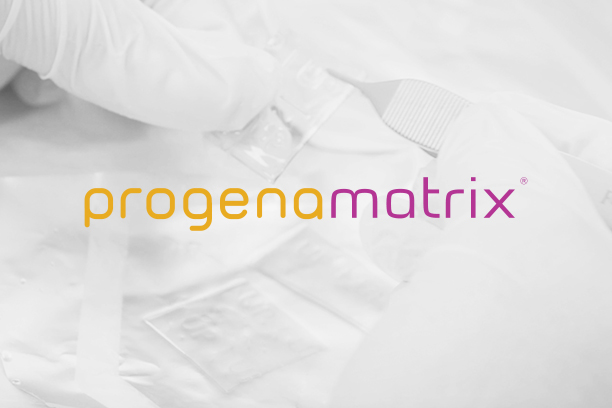Abstract
Macrophage response to biomaterials is emerging as a major focus in tissue repair and wound healing. Macrophages are able to differentiate into two distinct states, eliciting divergent effects. The M1 phenotype is considered pro-inflammatory and up-regulates activity related to tissue destruction, whereas the M2 phenotype is considered anti-inflammatory and supports tissue remodeling. Both are necessary but a fine balance must be maintained as dysregulation of naïve macrophages to M1 or M2 polarization has been implicated in several disease and injury models, and has been suggested as a potential cause for poor outcomes. Keratin biomaterials have been shown using different animal models to promote regeneration in several tissues. A potential common mechanism may be the general capability for keratin biomaterials to elicit beneficial inflammatory responses during the early stages of regeneration. In the present study, a keratin biomaterial was utilized in vitro to examine its effects on polarization toward one of these two macrophage phenotypes, and thus its role in inflammation. Exposure of a monocytic cell line to keratin biomaterial substrates was shown to bias macrophages toward an M2 phenotype, while a collagen control surface produced both M1 and M2 macrophages. Furthermore, keratin treatment was similar to the M2 positive control and was similarly effective at down-regulating the M1 response. Keratin biomaterial influenced greater production of anti-inflammatory cytokines and decreased amounts of pro-inflammatory cytokines. The use of a keratin biomaterial in regenerative medicine may therefore provide additional benefit by regulating a positive remodeling response.
View the published article here
Citation: Fearing BV and Van Dyke ME. In vitro response of macrophage polarization to a keratin biomaterial. Acta Biomaterialia. 2014; 10(7): 3136-3144.


